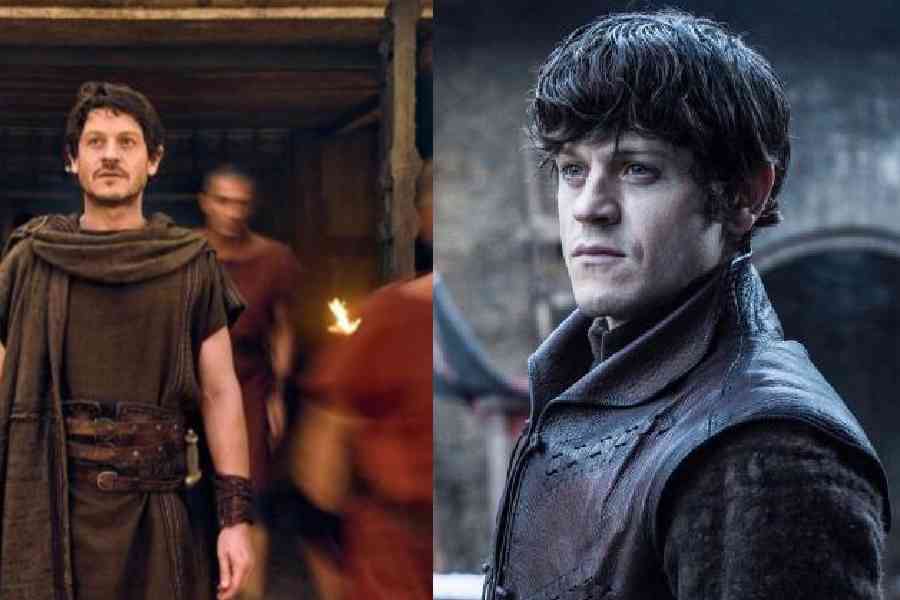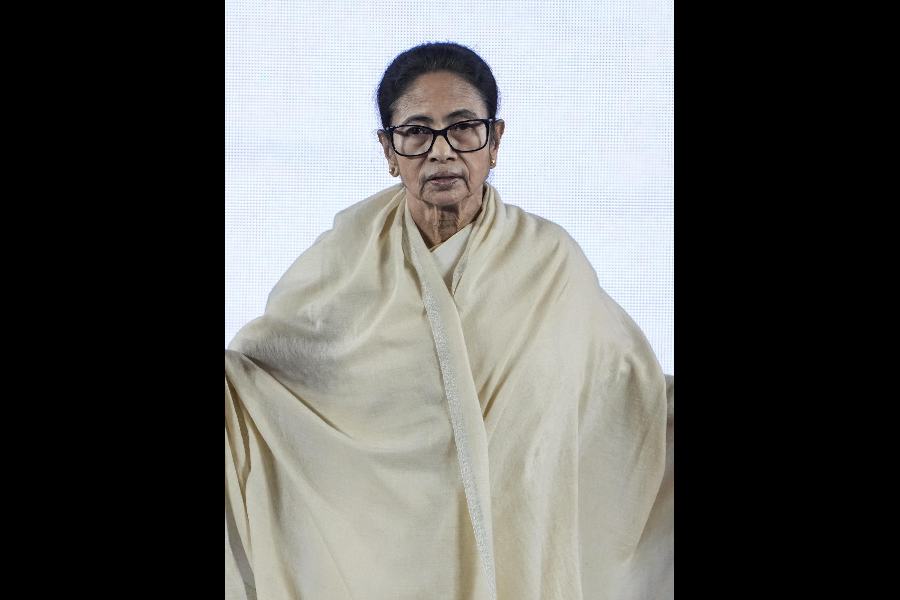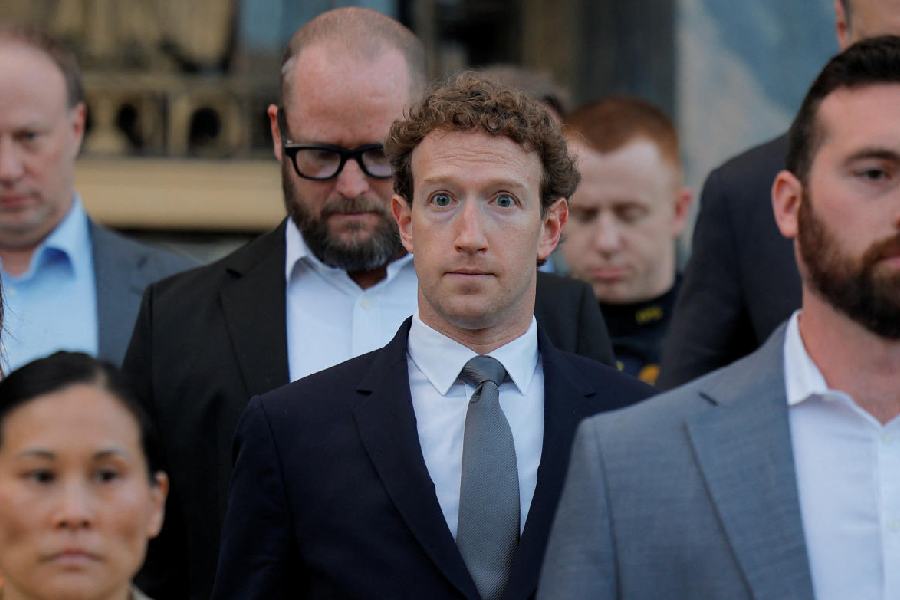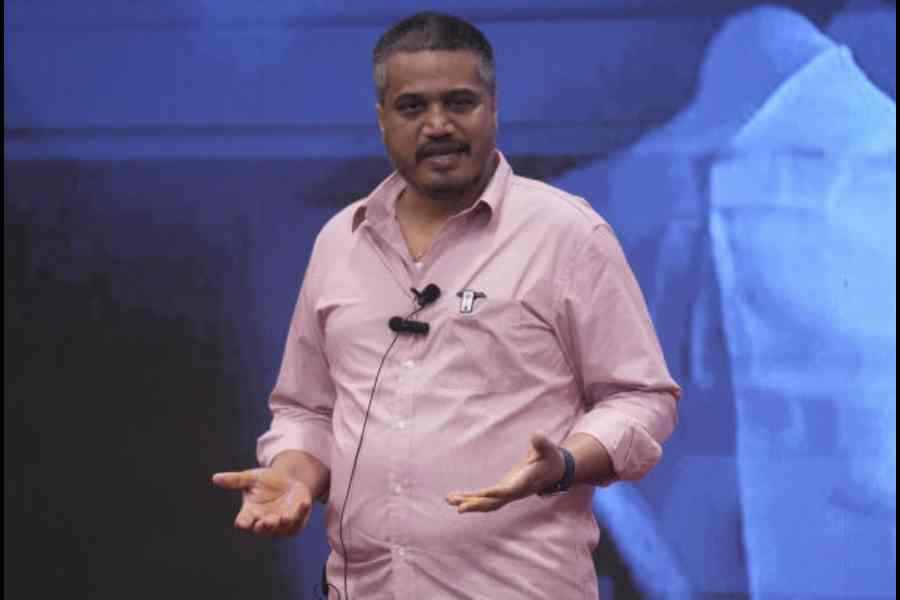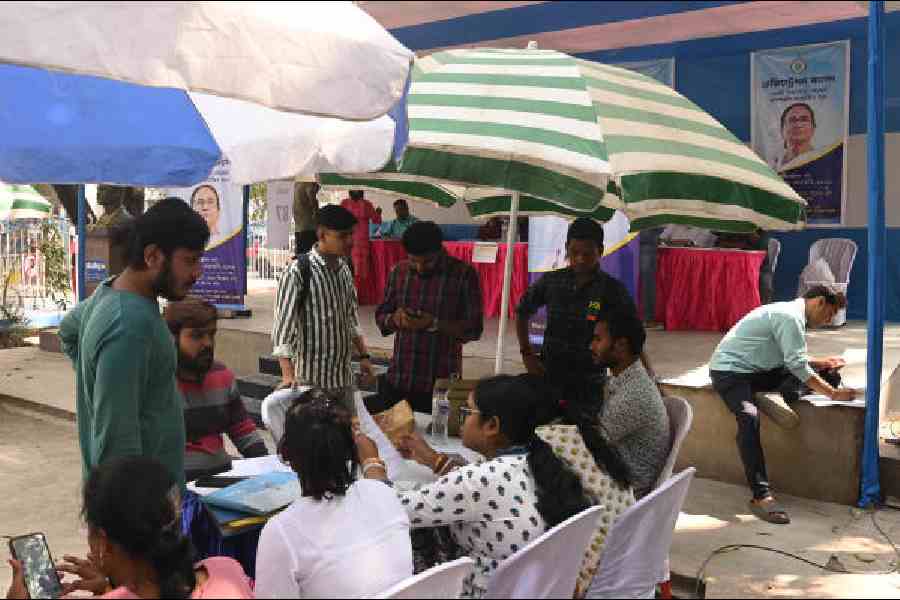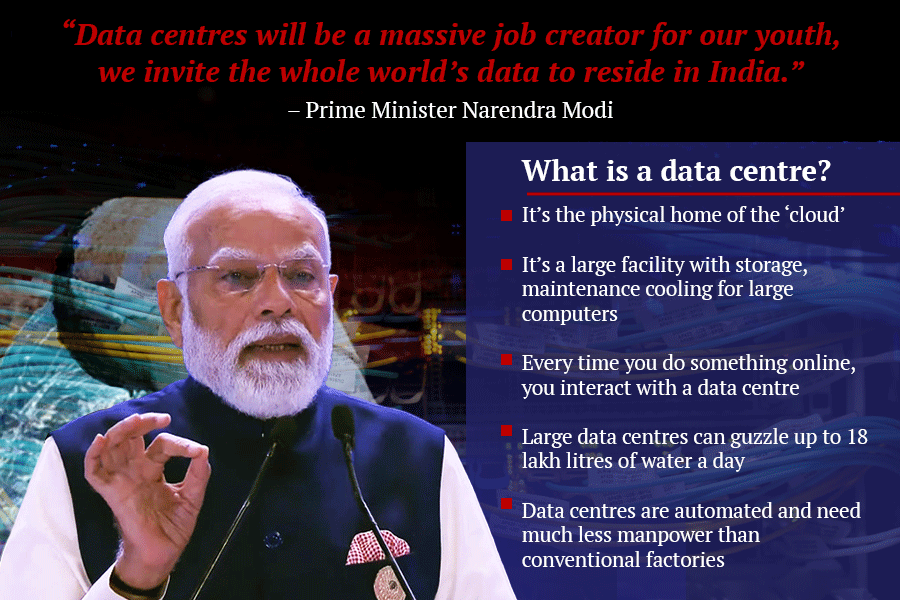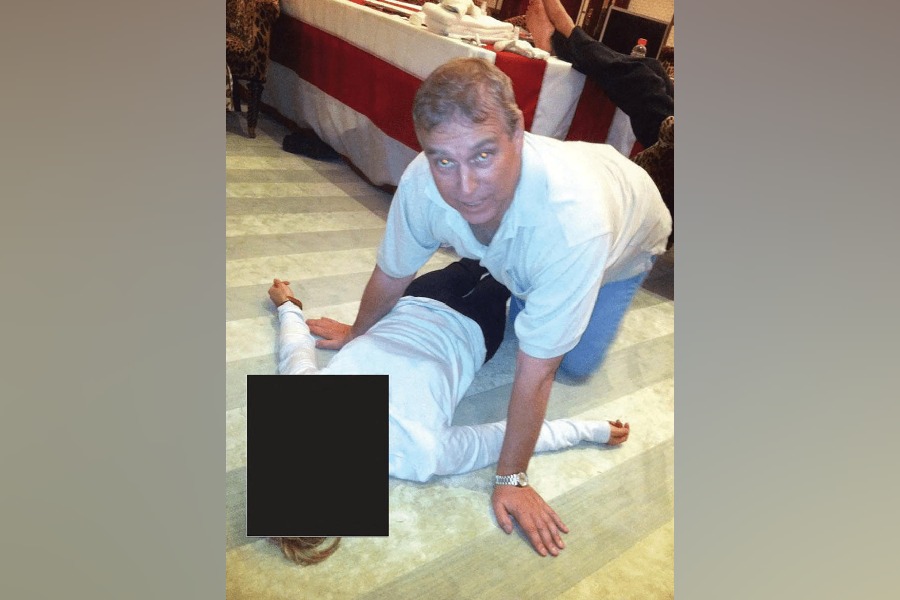For many years, he played the most hated man on television. Welsh actor Iwan Rheon — whose turn as the sadistic antagonist Ramsay Bolton shaped many of the events and fortunes in Game of Thrones — now essays the role of another grey character in Those About To Die.
Directed by Roland Emmerich — the man behind spectacle cinema like Independence Day, The Day After Tomorrow, Godzilla and 2012, among others — the sword-and-sandal epic set in Rome in 79 AD stars Rheon as Tenax, an ambitious and ruthless character who rises from the streets to make his place among those born into wealth and privilege. With time, Tenax graduates to becoming an underground crime boss and owner of Rome’s largest betting tavern.
The 10-episode high-stakes series, now streaming on Prime Video, boasts an eclectic ensemble cast, with legendary actor Anthony Hopkins playing the character of Roman emperor Vespasian. Over a video call, t2 chatted with the extremely amiable Iwan Rheon, 39, about playing the lead in his latest epic and more.
What got you interested in Those About to Die?
There are a few reasons. It started with the script. I read the first episode and I loved it! I loved how fast paced it was and how it opens the door for the modern audience to the workings of a cross-section of life in Rome, particularly around the games and the charioteering. It provides insight into the year 79 AD. That was very interesting to me.
And, of course, once I got to know that Sir Anthony Hopkins was in it, then I was immediately in. As a fellow Welsh actor, he is God as far as I am concerned. Also, when I looked at the script, I wondered who would be able to tell a story like this. The fact that it has Roland Emmerich at the helm was a big reason for me... he is the kind of visionary director who can create such a world and bring it to life.
What was it like seeing Anthony Hopkins, at age 86, killing it on set every day?
He is an absolute hero! Just to see him keep having the hunger that he has to do different parts is very inspirational for anyone, in whatever profession. It was obviously a pinch-me moment for me. Unfortunately, Vespasian (the emperor of Rome, portrayed by Hopkins) is the only character in the series that Tenax doesn’t speak to. That was a shame! It was also quite devastating for me (smiles).
But I did meet him and speak to him. I am very good friends with Jojo (Macari) and Tom (Hughes), who play his sons in the show, and I got to live vicariously through their stories of how he was on set. He loves acting and it was just wonderful to hear those stories about him.
Tenax is more of an anti-hero than a villain and in terms of being evil, he doesn’t have the wily machinations and putrid hatred of Ramsay Bolton in Game of Thrones. Are there any similarities between the two and what are the biggest differences?
They are incredibly different from each other. We all know that Ramsay was a psychopath who enjoyed causing pain. That was his hobby... he loved being disruptive. Though Ramsay and Tenax are both ambitious, the nature of their ambition is very different.
Tenax is a product of his environment. He grew up on the streets of ancient Rome and as a street kid, he sort of clawed his way up. The way he did that was by being ruthless, ambitious and clever... being able to look at situations and think how to get the best out of them for his benefit. He does things only out of a sense of purpose. Unlike Ramsay, he doesn’t randomly go about killing people.
However, if you get in the way of something that he is doing, then you can possibly see a more ruthless side to him. But Tenax is someone who looks after the kids who live on the streets of Rome, he gives them food and money, a purpose and also teaches them a little bit. He does things for these kids that he didn’t have when he was growing up. As the series develops, you start to realise that he is quite a compassionate person.
He sees these patricians around him who are born into wealth and they are the ones who own everything. He hates that and he also wants to break into it. That is the interesting thing about him, that he hates them but he wants to be one of them too. He wants to have a go at playing them at their own game.
The society at that time was very unfair. Wealth was not distributed equally and those who were not born into wealth or didn’t have a certain family’s blood in them couldn’t reach higher than a point. Tenax hates that and he fancies a crack at the patricians. I think that is really fun about him.
Is there a different process that you adopt while getting into the mind space of a negative character?
I approach every character in the same way. It actually is about finding the truth of that person — why they behave the way they do and then making an effort to understand them.
I like my work as an actor to be kind of like how it is when children play. When you see a group of children playing, you will realise that they are completely in their own world. When it is dinner time, they will come and eat and then go back straight into playing again. That is how I try to be as an actor. When they say ‘action’ on set, that is when I am playing the character, and then when ‘cut’ is called, I try and shake them off, and I don’t carry them with me too much. Sometimes it does take a little more time to shake off a certain character but I don’t let it get me down.
What kind of preparation went into playing Tenax? Also, in a show of this genre, how much do the externals like costume and production design aid you as an actor?
The costumes and the sets were incredible in this series. Every little detail helps an actor to get into a character. I always feel that I start to know how to play a character when I put the costume on for the first time. Then I start to feel different.
For Those About To Die, I listened to a podcast called The History of Rome and that had a huge impact. It is a fairly detailed but sort of quick-ish crash course in Roman history.
There is hundreds and hundreds of years of history before our story starts. The History of Rome by Mike Duncan was exactly what I was looking for. It helped me know who the emperor (Vespasian) was, when my character was born.... It also told me what the emperor was like in his teenage years and about The Year of the Four Emperors (AD 69, which was the first civil war of the Roman Empire, during which four emperors ruled in succession: Galba, Otho, Vitellius, and Vespasian). That was an incredibly turbulent time in Rome and that is when Tenax first made his move to climb the ladder in the underworld. Then there was about 10 years of relative peace and that enabled him to consolidate to get to where he is in the series. It was interesting for me to get into his mindset.
So do you know enough of the history of Rome to be able to teach a class?
Maybe, maybe not! I could perhaps teach six-year-olds! (Laughs)
Are you a fan of the sword-and-sandal genre? Though set in a different time and space, would you say that relevance to the socio-political fabric of modern times makes these stories relatable to most?
Yes, absolutely! I do like historical drama. And yes, we have to see something of ourselves in what we are watching in order to empathise or relate with the characters.
With Those About To Die, what is brilliant about it is that it shows the sport element of everything — it is about factions and gambling and gladiatorial sport. We get to see fans in it who argue about which racing faction is the best and who the best charioteer is. It is a lot like how modern sport works. Gladiator fights were, of course, about dueling to death. And though there is none of the fatalistic aspect involved, modern-day boxing, like maybe something like UFC, comes closest to that.

